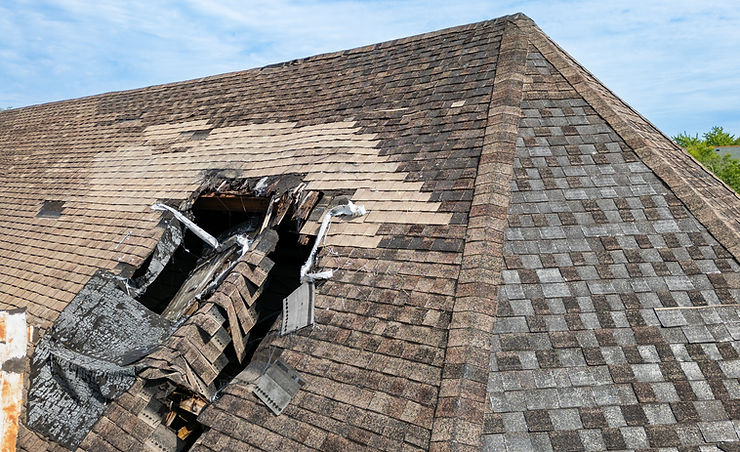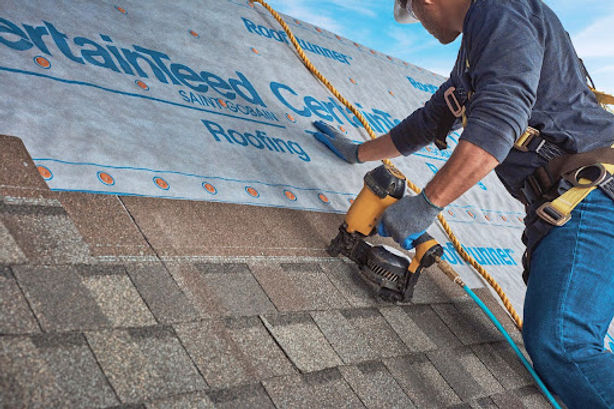Questions to Ask Your Roofing Contractor
- This post comes from the blog of our valued member Sun Vault Roofing
Choosing the right roofing contractor is one of the most important decisions a homeowner can make when facing a roof replacement, repair, or solar installation. A quality roof is a long-term investment, and working with a reliable, experienced roofing contractor ensures the job is done right the first time. But not all roofing companies offer the same level of professionalism, service, or value. Before signing your roofing contact, here are the questions to ask your next roofing contractor.

1. Are You Licensed and Insured?
Ask this question first, as it is one of the most important. If a contractor doesn’t have proper insurance and something goes wrong—like a worker getting injured or a major water intrusion during installation—you, the homeowner, could be held financially responsible. Always ask for proof of insurance and make sure it’s up to date. You can also verify licenses through the Wisconsin Department of Safety and Professional Services.
2. Are You Local?
Local contractors have a deeper investment in their reputation and customer satisfaction since they live and work in the same community as you. Further, they are more likely to understand local codes, weather patterns, and permit processes. They’re also easier to reach for service follow-ups, inspections, and warranty claims. To verify reviews and local ratings, check the Better Business Bureau. Ask where the contractor is based, how long they’ve operated in the area, and whether they belong to local business organizations such as your area’s chamber of commerce. For example, Sun Vault Roofing is a proud member of Dane Buy Local, a network of independent businesses committed to strengthening the local economy and building trust in the community.
3. What Manufacturer Certifications Do You Hold?
Roofing manufacturers offer certifications to identify contractors who meet high standards for product expertise, installation quality, and business ethics. For example, CertainTeed’s contractor credential program includes:
- Shingle Quality Specialist™
- Master Shingle Applicator™
- ShingleMaster™
- SELECT ShingleMaster™ (top-tier)
Ask what certification level your contractor holds and how that compares to the available options. Sun Vault Roofing is a SELECT ShingleMaster™ – CertainTeed’s highest designation—allowing us to offer their most comprehensive warranties, including the SureStart™ PLUS 5-Star Warranty with up to 50 years of coverage on materials, labor, tear-off, and disposal. Fewer than 1% of roofing contractors nationally hold this distinction.

4. What Brand of Products Do You Use?
Make sure your contractor uses an established brand such as CertainTeed, GAF, or Owens Corning. At Sun Vault Roofing, we use CertainTeed—one of the most respected names in the industry, with over 100 years of experience. Many of their products are manufactured domestically. A reliable contractor will also offer strong, long-term warranties that stand behind the materials used.
5. Will You Tear Off the Existing Shingles or Just Apply a New Layer on Top?
Skipping the tear-off step is cheaper, but it comes with serious consequences. Roofs installed over old shingles won’t last as long, and manufacturer warranties are typically invalidated. There are very few situations where skipping the tear-off is recommended, and a trustworthy contractor will explain your best option honestly.
6. Will You Be Replacing the Flashing or Edge Metals?
Flashing refers to metal installed around chimneys, vents, and valleys to prevent water infiltration. Edge metals protect the roof’s perimeter. These components are essential to a watertight roof. Ask whether your contractor plans to replace these materials. In most cases, the answer should be yes—unless they’ve been thoroughly inspected and are in excellent condition. If a contractor recommends leaving them in place, they should be able to explain why and confirm they’re still expected to last the full lifespan of your new roofing system. Otherwise, you risk premature leaks, costly repairs, and problems with warranty coverage.
7. Will You Inspect My Roof and Ventilation System Thoroughly?
Make sure the contractor will get on the roof for their inspection. A proper inspection should go beyond the surface. In addition to checking shingles and flashing, a reputable contractor will evaluate the attic ventilation, roof decking, and the overall structure for signs of wear, moisture buildup, or poor airflow. Ventilation is especially important—without it, heat and moisture can build up in your attic, shortening the life of your roof and potentially causing mold or rot. Ask whether your contractor will check intake and exhaust vents, assess airflow, and make recommendations for improvement if needed.
8. Are My Soffit or Fascia in Need of Repair?
Soffit is the underside of your roof’s overhang, and fascia is the vertical board that runs along the roof edge, supporting the gutters. These elements are often overlooked—but they play a critical role in roof ventilation, structural integrity, and curb appeal.
A thorough inspection should include the soffit and fascia, especially if there are signs of sagging gutters, rot, or pest activity. Damaged or deteriorating materials should be repaired or replaced before installing a new roof. Otherwise, they could compromise the performance of the new system and lead to preventable damage down the line.
9. What’s Your Process for Estimates and Contracts?
Professional contractors provide clear, written estimates outlining scope of work, materials, timeline, cleanup, and payment terms. Avoid vague or verbal-only estimates – these can lead to confusion or surprise charges later.
10. How Will You Communicate With Me During the Project Lifecycle?
Consistent communication ensures you’re informed at every step. Ask how you’ll receive updates, who your point of contact is, and how they handle unexpected changes or delays.
11. Can My Roof Last Another Season?
Not every aging roof needs to be replaced immediately. A knowledgeable contractor should be able to tell you whether your roof can make it through another winter—and if so, what short-term repairs or maintenance might help extend its life. That said, there are cases where a roof has reached the end of its serviceable life and needs to be replaced to avoid serious issues like leaks or structural damage. If a contractor says your roof can’t be safely patched or maintained, they should clearly explain why—pointing to specific risks or failures, not just offering a blanket recommendation.




